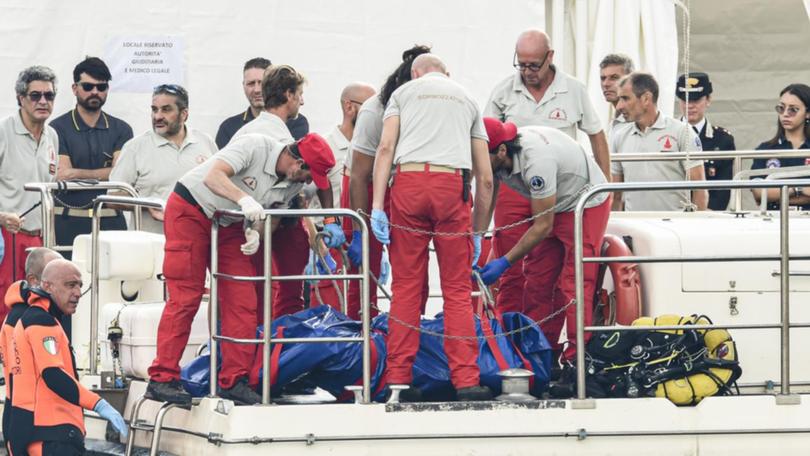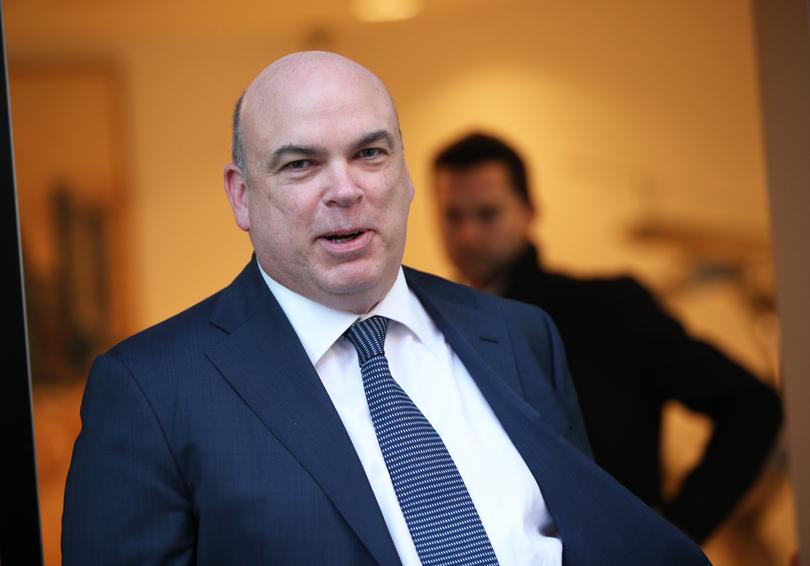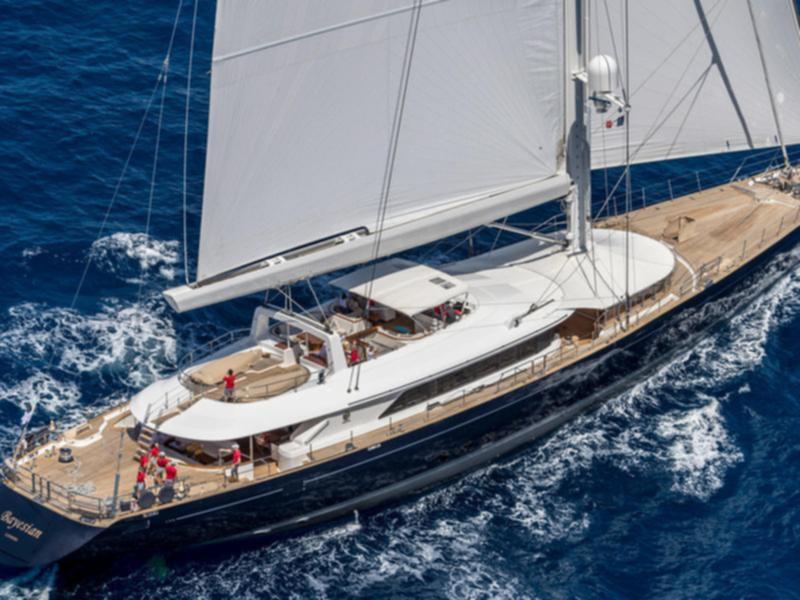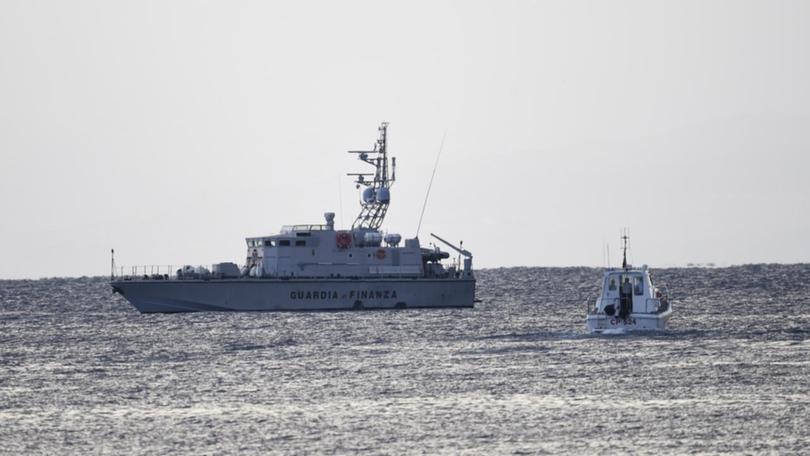Mike Lynch: British tech billionaire confirmed dead after body pulled from the sunken The Bayesian off Sicily
The bodies of the tech magnate and four others have been recovered from the shipwreck off Sicily, while his daughter Hannah remains missing.
The body of Mike Lynch, the British tech billionaire who went missing after his superyacht sank off the coast of Sicily, has been identified.
On Thursday, specialist diving crews retrieved five bodies from The Bayesian and returned to shore with them.
The four other bodies are understood to be the guests of Mr Lynch.
Sign up to The Nightly's newsletters.
Get the first look at the digital newspaper, curated daily stories and breaking headlines delivered to your inbox.
By continuing you agree to our Terms and Privacy Policy.The billionaire’s daughter, Hannah, who was also on the superyacht, has yet to be found and is potentially still trapped in the sunken wreck.
The Bayesian, a 56-meter British-flagged yacht, sank off Sicily on Monday after a freak storm.
The operation to search the hull, located on the seabed 50 meters underwater, quickly turned into a recovery effort due to the amount of time that had passed, maritime experts said.
Civil protection officials believe the ship was struck by a waterspout—a tornado over the water—and sank quickly.

‘Britain’s Bill Gates’
Born in Ilford, a large town in East London, to Irish parents in 1965, Lynch grew up near Chelmsford in the English county of Essex. His mother was a nurse and his father was a fireman.
Lynch had a modest upbringing but, at the age of 11, he was awarded a scholarship to attend Bancroft’s School, a private school in Woodford Green, East London.
From Bancroft’s, he attended the University of Cambridge, where he studied natural sciences, focusing on areas including electronics, mathematics and biology.
After completing his undergraduate studies, Lynch completed a Ph.D. in signals processing and communications.
Toward the end of the 1980s, Lynch founded Lynett Systems Ltd., a firm that produced designs and audio products for the music industry.

A few years later, in the early 1990s, he founded a fingerprint recognition business called Cambridge Neurodynamics, which counted the South Yorkshire Police among its customers.
But his big break came in 1996 with Autonomy, which he co-founded with David Tabizel and Richard Gaunt as a spin-off from Cambridge Neurodynamics. The company scaled into one of Britain’s biggest tech firms.
Autonomy’s software, made up of pattern-matching algorithms, was touted as a solution that could help employees abstract meaning from unstructured data, including web pages, email, video, audio and text.
These pattern recognition techniques were based on so-called Bayesian inference, a method of statistical inference named after a theorem developed by 18th-century statistician Thomas Bayes.
Lynch’s luxury yacht, the Bayesian, was named after this mathematical model.
After the sale of his company to HP, Lynch became known by U.K. national media as “Britain’s Bill Gates,” serving as a rare example of a U.K. businessman who successfully built and scaled a globally significant tech business selling into various markets around the world.

Legal battle with HP
However, Lynch’s reputation would go on to take a hit after the deal with HP took a turn for the worse. In 2012, HP took an $8.8 billion write-down on the value of Autonomy — just a year after buying it.
Lynch soon became the target of a protracted legal battle with the U.S. tech giant, with HP suing Lynch for $5 billion in damages over accusations that Lynch had inflated Autonomy’s sales by about $700 million.
Lynch, who had long denied the allegations, was extradited from Britain to the U.S. in 2023 to stand trial over the HP allegations.
This came despite pressure on the U.K. government from Lynch’s supporters not to allow his extradition.
U.S. prosecutors had filed criminal charges including wire fraud and conspiracy for an alleged scheme to inflate Autonomy’s revenue starting in 2009, partly to entice a buyer.
However, in a stunning victory in June, Lynch was acquitted of fraud charges following trial. The trial lasted three months.
During the course of the trial, Lynch took the stand in his own defence. He denied wrongdoing and told jurors that HP botched Autonomy’s integration.
Prosecutors had alleged Lynch, along with Autonomy’s now-deceased finance executive Stephen Chamberlain, who also died in a tragic car crash Saturday, padded Autonomy’s finances in a number of ways.
These included back-dated agreements, concealing the firm’s loss-making business by reselling hardware, and intimidating or paying off individuals who had raised concerns.
However, Lynch told jurors he had focused on tech-related matters at Autonomy, not finances.
Accounting and money decisions were left to Autonomy’s then-chief financial officer, Sushovan Hussain, he said.
Hussain was separately convicted in the U.S. in 2018 on charges of conspiracy, wire fraud and securities fraud related to the HP deal. He was released from prison in January after serving a five-year sentence.

Lynch’s influence on UK tech
Alongside founding Autonomy, Lynch also runs Invoke Capital, a venture capital firm focused on backing European tech startups. He founded Invoke in 2012.
He became a key voice supporting the U.K. technology industry, backing key names like cybersecurity firm Darktrace and legal tech firm Luminance.
Publicly listed Darktrace, which had fended off similar allegations of inflating its revenue by U.S. short seller Quintessential Capital Management, earlier this year agreed to a deal to be bought out and taken private by U.S. private equity firm Thoma Bravo for $5.32 billion in cash.
Lynch was previously on the board of U.K. broadcaster BBC, and once also served as an advisor to the U.K. government on the Council for Science and Technology.
In 2014 and 2015, he made the Forbes’ billionaires list, with an estimate net worth of $1 billion. However, while facing legal costs amid his dispute with HP, he dropped off that list in 2016.
Legal struggles aside, Lynch had several hobbies to keep him busy, including keeping and caring for cattle and pigs at his home in Suffolk.
“I keep rare breeds,” Lynch told LeadersIn in a 2016 interview.
“I have cows that became defunct in the 1940s and pigs that no one has kept since the medieval times and none of them have any Apple products whatsoever.”
Prior to his death, Lynch had reportedly returned to his farm in Suffolk, a county in the east of England, to recover from his U.S. legal battle, the local East Anglian Times newspaper reported.
Just weeks before he was reported missing, Lynch told The Times newspaper of how he feared dying in prison if found guilty over the HP allegations.
″’If this had gone the wrong way, it would have been the end of my life as I have known it in any sense,” Lynch said in the interview with The Times.
“It’s bizarre, but now you have a second life - the question is, what do you want to do with it?” he added.
- With CNBC
